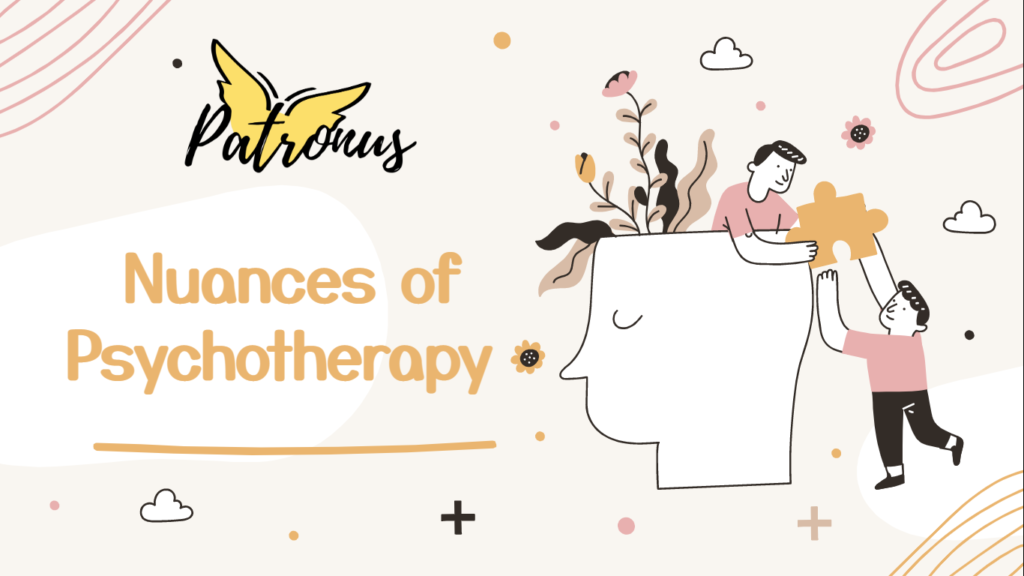
June 14th, 2022 marked the second year anniversary of Team Patronus. To celebrate it, we decided to tackle the theme of therapy throughout this month. In this 2-part blog, we seek to give to you a rundown of the basics of therapy, a few frequently asked questions and the gist of Nuances of Psychotherapy, a webinar we hosted with Dr. Yamini, a psychiatrist.
Rather than drone about the history and theoretical aspects of therapy, we’d like to walk you through the realities of it.
The time between one considering therapy and one actually going is long and arduous, filled with nagging doubts about expectations, a hint of scepticism, and a large amount of internal bias and stigma. This often is because of wilful ignorance to learn what therapy actually entails, and the surrounding stigma attached to going to therapy.
When does one consider therapy?
If you’re feeling anxious, irritable or overwhelmed by any emotion or situation beyond the capabilities of coping, visiting a therapist can serve useful. However, therapy might be helpful to anyone facing significant stressors without adequate support or healthy coping mechanisms. This could be a significant loss, struggles with relationships, a feeling of disconnection.
Most people, regardless of their specific challenges, can benefit from having an impartial observer listen and offer guidance. Because of therapy’s cost and time investment, however—as well as lingering stigma surrounding mental health—the decision to begin therapy isn’t always an easy one.
What to expect from therapy?
Therapy is often a long process, with ups and downs. While there are various types and techniques employed in therapy, the colloquial therapy usually refers to cognitive behavioural therapy where in we address our dysfunctional thought processes and develop healthier coping mechanisms.
Rather than solving our problems for us, therapists help us find the flaws in our approaches to it, and address the counter productive habits and actions we have.
This requires active effort, honesty and vulnerability from our side, which can be difficult. There might be occasional drops where we fall back into known unhealthy thought processes; but the goal of therapy is not to punish ourselves into a perfect version of ourself but to learn and grow to the best we can, making room for errs as well.
What to look for in a therapist?
Finding the right therapist firstly requires complete honesty from ourselves on how the sessions are making us feel. Look for traits of empathy, sensitivity, objectivity and flexibility.
It often takes time to get used to therapy, and to readjust one’s idea of therapy to the actual reality of it. It is easy to get discouraged, and the societal notions and conversations around it are not welcoming enough to ease the process. However, the changing discourse on social media can serve as a basic guide to find resources, support and aid to go further along on this journey.
– By Chitra Alse
